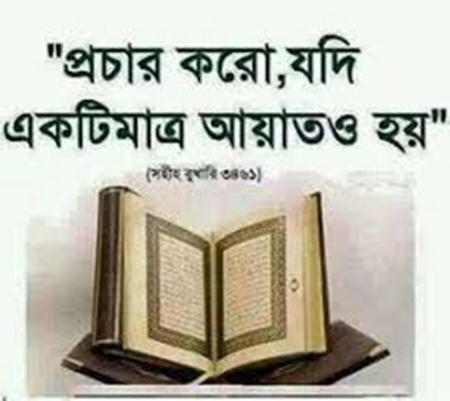Birthplace
Valiant Freedom Fighter and the Revivor of Muhammadi Islam Sufi Samrat Hazrat Maulana Mahbub-e-Khoda Dewanbagi (Madazilluhul Ali) Hujur Qibla was born on Wednesday, Agrahayon 27, 1356 B.S., December 14, 1949, in an aristocratic Muslim family, i.e. Syed family of Bahadurpur village under Ashuganj thana in Brahmanbaria district. His forefathers came in Bangladesh from Madinah of Saudi Arabia via Qatar for preaching Islam. After their arrival here they were titled Sarker. The name of his father is the late Alhaj Syed Abdur Rashid Sarker (Rh) and that of his mother is the late Hazrat Syeda Zobeda Khatun (Rh). He is the 6th among six brothers and two sisters.
On the previous night before the birth of Sufi Samrat Hazrat Dewanbagi (Maddazilluhul Ali), his mother dreamed that an eid crescent had appeared in the sky. All people were rejoicing at the sight of the moon. She also came out to see the moon. Then the moon came down to her lap. Then she awoke. At this dream she could guess that Allah the Magnificent would give her a prosperous descendant.
On the occasion of Aqika (naming ceremony) of Sufi Samrat Hazrat Dewanbagi (Maddazilluhul Ali) a renowned Islamic scholar of the Subcontinent Fakhre Bangla Maulana Tajul Islam named him ‘Mahbub-e-Khoda’, which means ‘loved by Allah’.
Educational Background
Sufi Samrat Hazrat Dewanbagi (Maddazilluhul ali) Hujur Qibla began his education at a primary school at nearby village of Sohagpur and completed it with distinction. Then with an indomitable desire to be a nayebe Rasul (Sm) by acquiring Arabic and Islamic education, he got admitted in renowned Talshahar Karimia Alia Madrasah. As a brilliant student he crossed every step with scholarships and achieved the highest degree of Alia Madrasah. With his distinct personality and charismatic leadership he adorned the VP post of the Madrasah Students’ Union to the last day of his education there. In 1969 he was made President of Joint Action Committee of Students comprising schools, colleges and madrasahs during the first phase of the Liberation Movement. In student life he had a strong attachment to awlia-e-keram. As a result the awlia-e-keram in disguise frequently met him. Different miraculous events also took place in his student life.
As a freedom fighter
After the beginning of the Liberation War on March 25 in 1971, the Sufi Samrat Hazrat Dewanbagi (Maddazilluhul Ali) Hujur Qibla formed a team of volunteers with the members of the Students Action Committee and ensured food, shelter and security for the people driven out by the Pakistani occupation force. On April 11, 1971 he joined the camp of the freedom fighters at Brahmanbaria along with his 72 volunteers. In the first few months of the Liberation War he, as the commander of a troop of freedom fighters under Sector No. 3, fought the occupation forces on different fronts courageously. Later, at the headquarters of Sector No. 3 at Hejamura in India he used to administer the ‘attestation parade’ or oath taking ceremony. During the Liberation War he established two mosques in India.
The Sufi Samrat Hujur Qibla led the Eid-ul-Fitr prayers at the Hejamura camp. On the occasion addressing the freedom fighters there he said, “Swearing on Allah I can say that before the next Eid-ul-Azha our country will be liberated. I will offer the Eid prayers along with you on the Race Course in Dhaka.” Allah the Magnificent had accepted his wish expressed there. In reality, after the independence of the country he led the Eid-ul-Azha prayers offered by the freedom fighters at the then Race Cource (Suhrawardy Udyan) in the capital.
Eventful Career
In 1972 Sufi Samrat Hazrat Dewanbagi (Maddazilluhul Ali) Hujur Qibla at the advice of General AKM Shafiullah, Commander of the Sector No. 3, joined the post of ‘religious teacher’ in the 16th Bengal Regiment as he was an alem freedom fighter. During this service he devoted himself to research work on the holy Quran and the Hadith. By holding tafsir mahfils regularly, he earned fame as a prudent mufasser. He was at the top of the religious teachers of different regiments in the then Bangladesh Army. In 1974 he took the oath of being a follower of Imam Syed Abul Fazal Sultan Ahmad (Rh), the greatest Wali Allah of that age, having known about him from the town kutub of Joydevpur.
Afterwards the Sufi Samrat Hujur Qibla went to his Murshid (religious guide) to join the annual mahfil (religious congregation). At the first sight, Imam Syed Abul Fazal Sultan Ahmad (Rh) could know him. Later, to have the Sufi Samrat Hujur Qibla by him, his fourth daughter was married to him. After taking the lessons of Tariqat, the Sufi Samrat Hujur Qibla devoted himself to the ascetic practice in ibadat-bondegi (worship). In 1975 he resigned from the service in the Army at the directive of his Morshed and joined his Darbar Sharif. Imam Syed Abul Fazal Sultan Ahmad (Rh) appointed the Sufi Samrat Hujur Qibla the Chief Khalifa (representative) to give him the responsibility of Tariqah and running the Darbar Sharif. After taking the responsibility he reached the higher makam (stage) of the spiritual world through ascetic practice. He visited different districts of Bangladesh for preaching Tariqah and addressing waz mahfils as the Chief Khalifa and the chief of the Olama Mission. Various Kinds of miracle took place in those congregations and thousands of people attending there took the oath of the Tariqah being moved by his sermons. Many non-Muslims embraced Islam having come to his close contact.
Sufi Samrat Hazrat Dewanbagi (Maddazilluhul Ali) Hujur Qibla in the blessed hours on Thursday, December 16 in 1983 was bestowed the responsibility of the great reformer on behalf of Allah the Magnificent. Later, the Great Prophet Hazrat Muhammad (Sm) decorated him with the title ‘Revivor of Islam’ in the blessed hours on Wednesday, April 5 in 1989. Having possessed multilateral talents he has established a unique instance of creative works in his active and checkered career. In brief it is as follows:
Sufi Samrat Hazrat Dewanbagi (Maddazilluhul Ali) Hujur Qibla established a madrasah and an orphanage in 1980; a high school, a hospital and a post office in 1982 at Chandrapara in Faridpur district. In that year he worked for the improvement of roads to and from Chandrapara for easy communications. He also worked for electrification there. He established Sultania-Mujaddedia Research Center in 1983, Sufi Foundation in 1992 and Al Quran Research Center in 1998 in Dhaka for Islamic research. He launched a holy Quran research project comprising renowned university teachers, olama-e-keram (religious scholars) and Islamic researchers. To preach Islamic ideals he established Darbar Sharifs in Dhaka in 1984, in Narayanganj in 1985, in Rangpur in 1995 and in Mymensingh in 1997. He also established more than one hundred mosques and Khankah Sharifs in different districts of the country and in Abu Dhabi, India, Japan, Pakistan, Sweden and the USA. He published the vernacular monthly ‘Atmar Bani’ in 1981, the English weekly ‘The Weekly Chandrapara’ in 1983, the vernacular weekly ‘Dewanbag’ in 1989, the daily ‘Insanyat’ in 1991 and the English weekly ‘The Message’ in 1992. He has authored the following books: ‘Ferka Somosyar Somadhan’, ‘Eid Somosyar Somadhan’, ‘Sontaner Proti Mayer Odhikar’, ‘Kobor o Mazar Somporke Islamer Bidhan’, ‘Allahr Noikotyo Laver Sohoj Poth’, and ‘Eid-Moon Sighting Problem and Solution’. Besides, research books like ‘Sultania Khabnama’, ‘Shanti Kon Pothe?’, ‘Mukti Kon Pothe’, ‘Allah Kon Pothe’, ‘Ezider Chokrante Muhammadi Isam’, ‘Imam Syed Abul Fazal Sultan Ahmad (Rh)-er Jiboni’, ‘Sufi Samrater Jugantokari Dhormio Songskar’, ‘Bishwanabir Swarup Udghatone Sufi Samrat: Rasul (Sm) Satyoi Ki Gorib Chhilen?’ have been published by Sufi Foundation with his valuable guidance. With a view to preaching the ideals of Hazrat Rasul (Sm) worldwide, he has formed World Ashek-e-Rasul (Sm) Organisation and Ashek-e-Rasul (Sm) Parishad. He has introduced the Sultania-Mojaddedia Tarikah by reforming the system of Tasauf (spiritual practice) befitting the age. He has uphold Muhammadi Islam, the real ideals of the Great Prophet Hazrat Muhammad (Sm), for mankind with the esoteric as well as the exoteric reforms. He has been taking efforts to make man ashek (lover) for Hazrat Rasul (Sm) by arranging World Ashek-e-Rasul (Sm) Conference. By following and practising the guidelines given by the Sufi Samrat Hujur Qibla and by arranging milad mahfils in their houses, many people have become Asheks-e-Rasul and have been fortunate to see Hazrat Rasul (Sm) in dream and in moraqaba (meditation).
TEACHING OF SUFI SAMRAT:
a)Self-Purification
b)Immortality of Heart (Qulb)
c)Deep Meditation during Prayers
d)To become an Asheq-E-Rasul
1.The holy Quran says, “Those who have purified their souls, offer dhikr of the name of the Lord and offer prayers are successful.” (Sura A’la, verse 14 & 15). For this reason, the Sufi Samrat Hujur Qibla by teaching mainly three lessons -- self-purification, continuing dhikr in qalb (heart) and deep meditation in prayers – transforms a man into an Ashek-e-Rasul belonging a nice character.
2. The holy Quran says, “The man who keeps his soul pure is successful. And the man who makes his soul impure is ruined.” (Sura Shams, verse 9 & 10). That is why the Sufi Samrat Hujur Qibla uses to give mankind the guidelines for achieving ideal character having a purified soul by performing wazifa (duty) regularly after five times’ prayers.
3. The holy Quran says, “The people, whose qalbs have been refraining from the dhikr of Allah, are clearly derailed or confused. Therefore, the Sufi Samrat Hujur Qibla teaches mankind the process of keeping the path of eiman (belief) by continuing the dhikr of Allah in the qalb and salvages him from derailment. Allah the Magnificent again says, “When you complete prayers, continue dhikr of Allah in any state like standing, sitting and lying.” (Sura Nisa, verse 103). He (Sufi Samrat) teaches man the way to always continue the dhikr of Allah in the qalb so that he can die with eiman in the state of continuing the dhikr by obeying the directives of the Almighty.
4. The Hadith says, “That prayer is not accepted in which worldly affairs appear in mind.” So, the Sufi Samrat Hujur Qibla teaches the mu’meen (believer) Muslims the process of offering prayers devotedly by accepting that Allah is present at the place of worship and being free of thinking about worldly affairs. If the musullis ( worshippers) follow his guidance, worldly affairs do not appear in their minds. As a result they can achieve the complete fayez (flow of love), blessings and bounties of prayers. Even some people are able to realise the reality of the Hadith, “Namaz (prayer) is the Me’raz for a mu’meen.”
5. The holy Quran says, “(Oh My friend) Tell them, if you want to love Allah, follow me; then Allah will love you and forgive your sins.” (Sura Ale Imran, verse 31). It has been narrated in the Hadith that Hazrat Rasul (Sm) says, “ The man who will not love me more than his life and wealth, parents, sons and daughters and all other things will not be a mu’meen (believer).” (Bokhari Sharif and Muslim Sharif). For this reason Sufi Samrat Hazrat Dewanbagi (Maddazilluhul Ali) Hujur Qibla uses to give his followers guidance on showering darud at least 722 times a day and at the time of Rahmat i.e. during Tahazzud and after E’sha prayers and on muraqaba (meditation) to achieve love of Hazrat Rasul (Sm).
6. The holy Quran says, “Oh Muslims! The Roza (fasting) has been made obligatory on you as it was made obligatory on your forefathers too so that you can achieve taqwa (perfectness).” ( Sura Baqara, verse 183). In the Hadith-e-Qudsi Allah the Magnificent says, “Roza is for me, and I am its exchange.” Therefore, the Sufi Samrat Hujur Qibla gives mankind the guidance to attain nearness to Allah having purification of soul by observing Roza perfectly.
7. The holy Quran says, “Those who offer namaz (prayer), pay Zakat (charity) and believe in afterlife are on the way to their Protector, and they are successful.” (Sura Lokman, verse 4 & 5). That is why he (the Sufi Samrat) guides mankind to the perfect way of paying Zakat.
8. The holy Quran says, “Going to perform Hajj (pilgrimage) is obligatory for him, who among men, has the ability to go to that House intended for Allah.” (Sura Ale Imran, verse 97). By performing Hajj at Baitullah (House of Allah) Sharif at Makka Moazzema, man pledges to be guided to the path shown by the Great Prophet Hazrat Muhammad (Sm) following the footprints of the great men. For this Sufi Samrat Hujur Qibla teaches his followers the lessons of outer and inner rules and regulations of Hajj for achieving its skill, blessings and bounties. Following his guidance many pilgrims being Asheks-e-Rasul went to Madina and had been blessed to see Hazrat Rasul (Sm) in dream and deep meditation.
9. The holy Quran says, “Verily I shall send My representative (man) to the earth.” (Sura Baqara, verse 30). Man is the representative of Allah. Therefore, to know Allah and establish communications with Him is bounden duty for each man. To this end Hazrat Dewanbagi (Maddazilluhul Ali) Hujur Qibla uses to give man lessons of 37 classes to reach the highest stage of spiritual knowledge and by knowing Allah establish communications with Him to follow the path He directed to. By following his guidance many devotees have been fortunate to have nearness to Allah and Hazrat Rasul (Sm).
10. The holy Qaran says, “I have made your religion complete today. I have full favour for you and I have selected Islam as the only religion. ” (Sura Maayidah, verse 3). Therefore, in Muhammadi Islam, introduced by the Great Prophet Hazrat Muhammad (Sm), there is the guideline for worldly peace and peace in the afterlife. The Sufi Samrat Hujur Qibla makes life happy and peaceful in the world and for the afterlife by giving complete lessons and guidance for acquiring the knowledge on Shariat, Tariqat, Hakiqat and Marefat according to the philosophy of life of Hazrat Rasul (Sm). Moreover, following his guidance man in the worldly life has been getting rid of diseases, dangers, disasters, wants etc. by the grace of Allah. In a word it can be said that in the light of the Quran and the Hadith he has been teaching mankind to be real representative of Allah or insan-e-kamel (perfect man). By following the guidance of Sufi Samrat Hujur Qibla, a man becomes competent to understand the reality of Islam.
The Hadith narrates that Hazrat Rasul (Sm) says, “Verily the Great, Powerfull and Respectable Allah Ta’ala at the beginning of each century sends such a man for the community who uses to reform religion.” (Abu Daud Sharif). Allah the Magnificent has sent Sufi Samrat Hazrat Dewanbagi (Maddazilluhul Ali) Hujur Qibla as the great reformer of this century. Therefore, he has uphold the real Islamic philosophy of the Great Prophet Hazrat Muhammad (Sm) for mankind by reforming the concept prevalent in the Muslim society in the name of Islam, which is beyond the holy Quran and the Hadith and has been established by the conspiracy of the heretics and due to the ignorance of co-religious people. His reforms have been praised extensively in home and abroad. The Sufi Samrat has made more than one hundred reforms. Only a few of them are given below:
Was the Great Prophet (Sm) really poor?
Did the demise of Prophet Mohammad (Sm) take place on Rabiul Awal 12?
The greatest Eid for all creations: The Birth Eid of the Great Prophet (Sm) -- How?
Importance and significance of Milad.
Solution of problem in ritual observance by the Muslims on the same day.
Justification of delivering Khutba (sermon) of Jum'a in mother tongue.
Here are some reforms that Bangladesh Government has approved and are being practiced by many Muslim of the country and even in outside many countries by his devotees:
‘Elm-e-Tasauf’ has been included in Islamic Studies for the students of schools, colleges and universities of Bangladesh.
Land registration in Bangladesh is being done according to the method proposed by the Sufi Samrat Hujur Qibla.
Introduced the scientific timetable of Sehri and Iftar during Ramadan.
Bangladesh Government declared Friday as the weekly holiday.
A research has proved that the real number of verses of the holy Quran would be 6236.
Advise the Muslims not to say prayers on the jaynamaz (prayer mats) with the pictures of Qaba Sharif and Raoza Sharif of Prophet (Sm).
The qurbani must be performed in the name of Allah.
At the day of holy Ashura, Allah the Magnificent ascended the Divine Throne to start His creations.
An elaborate programme to celebrate it as the holy Eid-e-Miladunnabi (Sm).
Hazrat Rasul (Sm) was never poor.
Deedar (seeing) of Allah the Magnificent is not possible.
At the call of the Sufi Samrat the Asheks-e-Rasul have been holding milad mahfil and achieving immense blessings and bounties.
Khutba should be delivered in mother tongue.
A model of lunar-year calendar.
Following his guidance numerous people have been fortunate enough to realise the peace of Muhammadi Islam in their practical life.


 অনুগ্রহ করে অপেক্ষা করুন। ছবি আটো ইন্সার্ট হবে।
অনুগ্রহ করে অপেক্ষা করুন। ছবি আটো ইন্সার্ট হবে।








